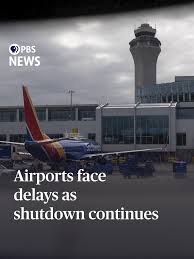
Introduction
The potential for a government shutdown poses significant challenges to various sectors, with airports being particularly affected. As a critical part of the transportation infrastructure, airports rely heavily on government operations for security, safety, and efficiency. Understanding the implications of a government shutdown on airport operations is crucial for travelers, businesses, and the economy.
Immediate Effects on Operations
During a government shutdown, federal agencies face funding interruptions, which can lead to reduced staffing and delayed services. The Federal Aviation Administration (FAA), which oversees air traffic control and airport regulations, may operate with limited resources. This often results in longer wait times for travelers due to fewer TSA agents available for security screening and a decrease in air traffic controllers, affecting flight schedules and operations.
Security and Safety Concerns
Security is paramount in air travel, and government shutdowns raise significant concerns about safety protocols. The Transportation Security Administration (TSA), responsible for passenger screening, might experience staffing shortages. According to TSA data, during the last government shutdown, reported wait times at airports increased, leading to growing frustration among travelers. The diminished workforce raises questions about the effectiveness of security measures, heightening concerns among passengers.
Economic Implications
Airports greatly contribute to local and national economies, generating billions in revenue and supporting thousands of jobs. A government shutdown can have a downtrend effect on airlines, airport operations, and associated services like concessions and retail. In September 2021, the U.S. Travel Association estimated that every day of a government shutdown could cost the travel industry approximately $140 million. Similar impacts are anticipated in Canada, affecting airports reliant on government funding and oversight.
Future Considerations
As discussions of potential government shutdowns continue, it is vital for stakeholders to consider contingency plans. Airports, airlines, and security agencies may need to adapt to limited funding scenarios while advocating for prioritization of essential services. Proactive communication with travelers about potential delays, cancellations, and their rights will also be necessary to mitigate frustration during such crises.
Conclusion
The effects of a government shutdown on airports can impede travel efficiency and compromise safety protocols, underscoring the need for effective management of resources and communication. As the transportation sector braces for potential disruptions, it is essential for travelers to stay informed about changes and plan accordingly. Airport administrations, airlines, and the government must collaborate to minimize adverse effects and maintain a functioning travel environment during challenging times.



